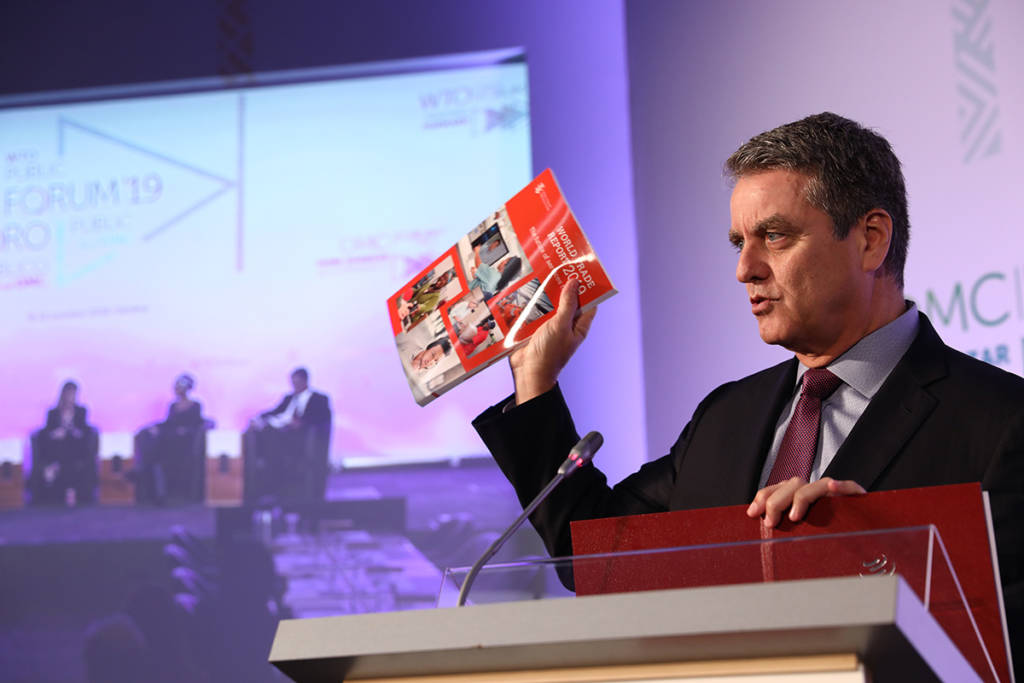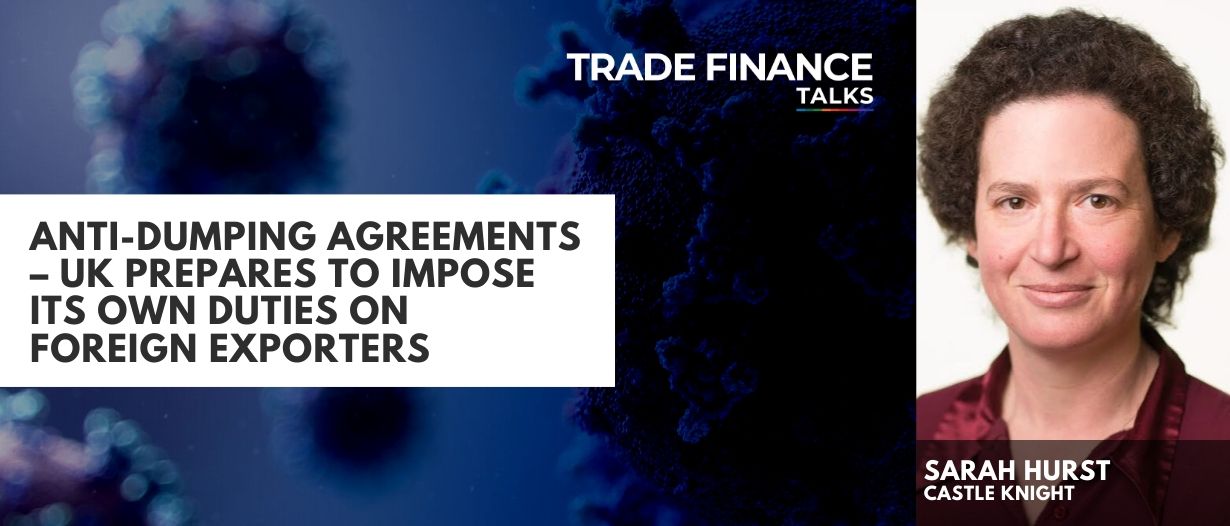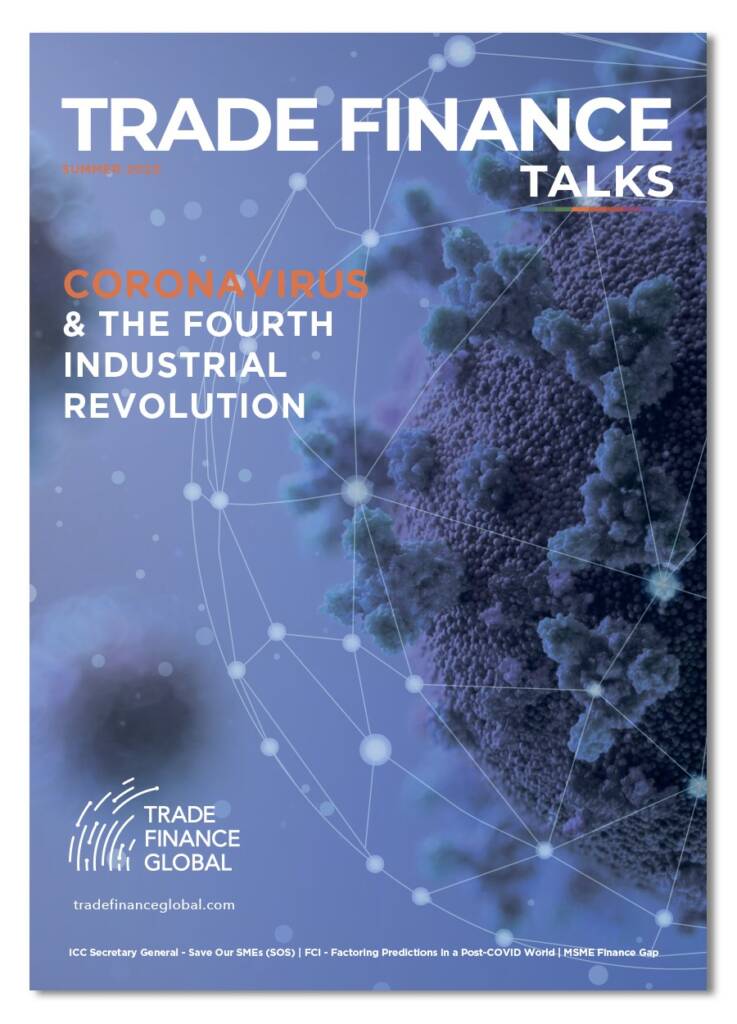The UK will be responsible for its own trade remedies investigations when the Brexit transition period ends on December 31, taking over this function from the European Commission. This is an expensive burden both for government and the private sector, as an enormous amount of data must be gathered over a period of up to a year to comply with WTO rules in anti-dumping and anti-subsidy cases. The purpose is to impose duties on foreign exporters that are undercutting UK manufacturers.

The trade remedies cases should be overseen by a new public body called the Trade Remedies Authority, but that was not established as planned last year because the Trade Bill was never passed. The government is now reintroducing an amended Trade Bill and the TRA may soon come into existence. In the meantime the cases are being dealt with by the Trade Remedies Investigations Directorate (TRID) of the Department for International Trade.
Until the end of the transition period the UK still implements all EU trade remedies measures, but the TRID has already started to review about 43 EU measures that the government intends to keep after this year. The first reviews are being conducted for cases on welded pipes and tubes from Russia, Belarus and China, and rainbow trout from Turkey. Any UK companies that produce welded pipes and tubes or breed rainbow trout could participate in the cases, as well as those that import them or have some other connection to the products.
What is Anti-dumping?
If a company exports a product at a price lower than the price it normally charges on its own home market, it is said to be “dumping” the product. The WTO Agreement does not regulate the actions of companies engaged in “dumping”. Its focus is on how governments can or cannot react to dumping — it disciplines anti-dumping actions, and it is often called the “Anti-dumping Agreement”. – Source: WTO

UK process questioned
Companies wanting to maintain the duties must provide evidence that the imported products are being sold in the UK at prices below their “normal value” in their home countries, and in the anti-subsidy case on rainbow trout they must show that Turkey’s rainbow trout producers are receiving subsidies. They must also supply evidence of injury to their own business that has been directly caused by the relevant imports. The TRID then also conducts an “economic interest test” to decide whether additional duties on the products would be in the interest of the whole of the UK.
Importers of the products from the countries concerned may wish to oppose the duties. Foreign exporters have already indicated that they will strongly resist the UK’s planned measures, with Russian group TMK writing to the TRID to argue that the UK imports negligible quantities of welded pipes and tubes from Russia, and that the “transition reviews” should actually be treated as completely new cases, since the WTO does not envisage a transition review process. TMK said:
“The Transition Review appears to be substantially different from a review in the meaning of Article 11 of the [WTO] AD [Anti-Dumping] Agreement due to the unique character of Brexit. The UK’s exit from the EU has totally changed the market and conditions of trade.”

WTO in crisis
Another complication is the chaos in the WTO itself: its Director-General Roberto Azevedo has said he will step down early, and a US Republican senator has introduced a resolution calling for the country to withdraw from the WTO altogether. The dispute resolution system is in crisis, with many countries trying to establish an alternative appeals system without the involvement of the United States. Whether countries will continue to follow the WTO trade remedies process or start imposing more tariffs without recourse to it is unknown.
From January 1 next year the TRID will also have to consider any new requests for trade remedies cases from UK manufacturers. Since trade flows and volumes will be very unpredictable, it’s hard to know what cases might crop up, but manufacturers and importers should understand how these investigations work and be ready to participate in them.
Now launched! Summer Edition 2020
Trade Finance Global’s latest edition of Trade Finance Talks is now out!
This summer 2020 edition, entitled ‘Coronavirus & The Fourth Industrial Revolution’, is available for free online, covering the latest in trade, export credit insurance, receivables and supply chain, with special features on fintech and digitisation.





























